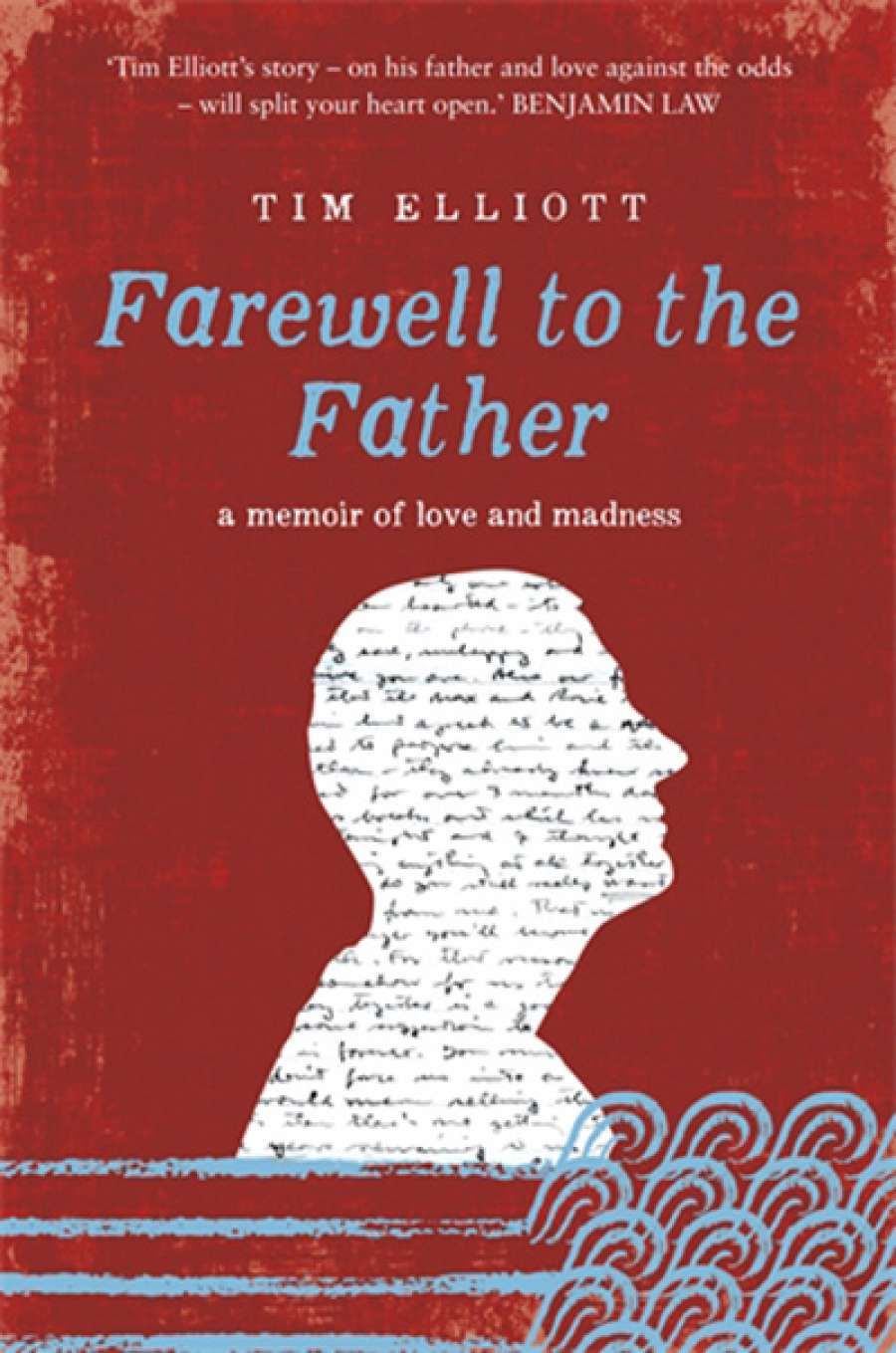
- Free Article: No
- Contents Category: Memoir
- Custom Article Title: Kári Gíslason reviews 'Farewell to the Father' by Tim Elliott
- Custom Highlight Text:
One of the claims that is sometimes made for the memoir form is that it gives the author a degree of release from the past. Getting it down on paper can also be about ...
- Book 1 Title: Farewell to the Father
- Book 1 Biblio: Picador $34.99 pb, 330 pp, 9781743537893
Tim Elliott works as a journalist at the Sydney Morning Herald. The genesis of his memoir was a 2014 article he wrote about his father Max Elliott, a well-known Sydney doctor and former Australian rugby union player. That article covered much of the material expanded in the first part of the book. Max was much loved and respected, and on the surface enjoyed a comfortable life in the Sydney suburb of Mosman. The large family home looked over Mosman Bay, the children went to private school, and Elliott's mother, Rosemary, devoted herself to caring for the home and family. Max could be unpredictable: he liked to shock young women who visited the house by showing up naked, and he encouraged his children to experiment with drugs. But if there was madness there, it seemed to be of the eccentric, charismatic kind.
Underneath, however, lay something much darker. Max Elliott, as the family knew him, was 'obsessive, masochistic, with a mind like a stoked furnace'. He suffered from what would now be diagnosed as bipolar disorder. He was also an alcoholic, and during his worst periods would be violent and abusive towards his wife and children. Tim, the youngest in the family, was the last of the children to leave. Until a young man, he lived in fear of Max, and also with the real dread that one day his father would deliver on his repeated threats of suicide. Perhaps typical of the times, this disturbing and often heart-wrenching situation went largely unnoticed by the prosperous community around them: 'That was "dirty laundry", Mum would say, and one shouldn't go around airing it.'
Elliott's approach in this book is very different from the one taken by his mother. He has given us an open and direct account, however dirty the laundry might be. But Elliott does not set out to shock the reader. His tone is sometimes angry and occasionally bitter, but his training as a journalist is also present, in the memoir's steady pacing and in the thematic nature of many of its chapters. While there is a broad chronology to the work, it can equally be read as a series of topic points, a study of family entrapments and their various effects – on his mother, his parents' marriage, his siblings, his adolescence, his first loves. Generally, Elliott's preference is to examine these points of impact in turn, I suspect as a way of quietly insisting that the book has a methodology, and is not merely an outpouring of anger about the events that it covers.
Running through the story is an almost desperate concern with the possibility of escaping a ruinous family situation and its ongoing legacy. As a boy and now as an author, Elliott searches for distance from the father who dominated his life. But at what point is it possible to say goodbye? Death, for one, seems not to offer much in the way of farewell. 'Once a person dies, you assume they are gone. But in fact they become more present than ever.' You might even begin to search them out more than you did in the past: 'If it was windy, I told myself I could hear him. If it was a full moon, I told myself I could see him.'
 Max Elliott and his children in the 1970s (Tim Elliott, second from right)
Max Elliott and his children in the 1970s (Tim Elliott, second from right)
Rather than fading away, after his death Elliott's father becomes a persistent and not always unwelcome ghost. In part, this is simply because Elliott still loves him. It is also because of the almost gothic hold that Max retains over his son. Earlier, Elliott writes that the family house 'was our castle, and Dad was our king'. Even after Elliott has cleared the castle walls and watched over the death of the king, the shadows of childhood remain.
In that sense, Farewell to the Father does not perform the goodbye that is offered by the title, and nor does it need to. As the story moves towards Elliott's life as it is today, we witness another kind of farewell, and I expect it is the one that matters most. Here, Elliott describes his own struggle with mental illness and its impact on his family life. It is also at this point that Elliott begins to search for a different response to that illness, one that won't harm his wife and children. In doing so, Elliott makes a powerful and moving farewell – if not to the father, then to a model of fatherhood that he is determined not to repeat.


Comments powered by CComment